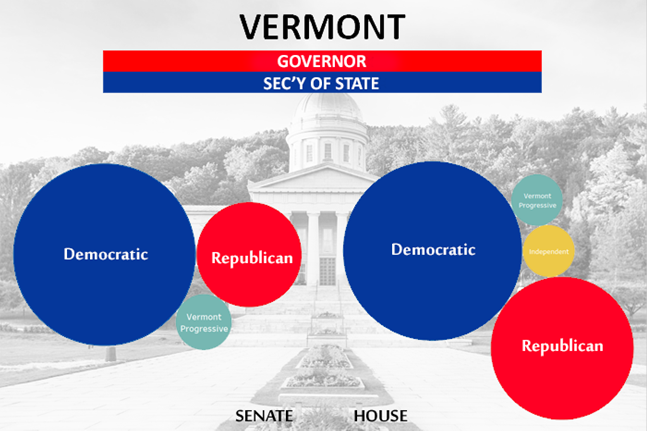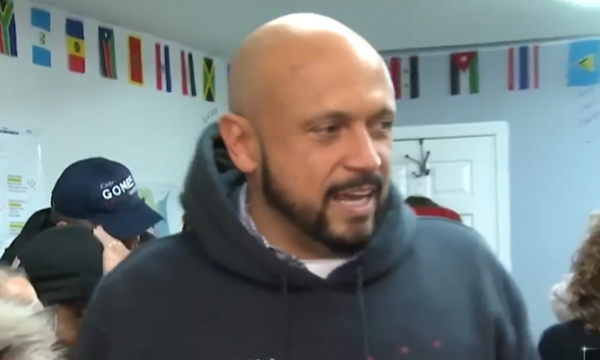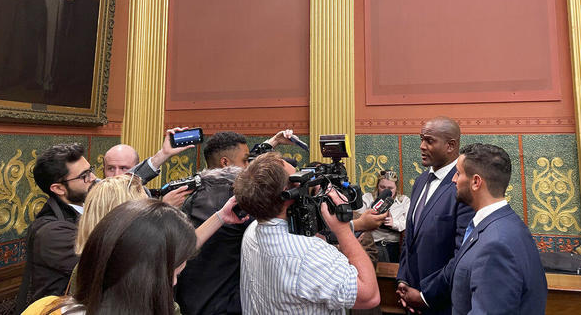Legislative Snapshot: Vermont
The start of spring finds the Vermont Statehouse deep into its legislative agenda. Governor Phil Scott (R) has enacted a series of reforms on gun control that have passed through the House and the Senate, while other issues, such as paid leave and tax reform, continue to undergo debate and deliberation.

Legislative Highlights
- Gun Control: In late March the legislature passed S. 55 (“An act relating to the disposition of unlawful and abandoned firearms”). After much debate, both chambers agreed to this legislation that raises the minimum age to purchase a gun to 21, bans bump stocks, expands background checks, and puts a limit on the capacity of magazines that can be sold or possessed in the state. Two more pieces of gun control legislation followed in early April, as legislators gave unanimous approval to S. 221 and H. 422, allowing law enforcement officials to temporarily confiscate guns from persons judged to be of “extreme risk” to themselves or others or found at the scene of alleged domestic assaults, respectively.
- Taxes: The Vermont House of Representatives started their work this year by responding to the federal tax bill, which will have cascading effects on the state level this year. The House proposes the following changes:
- Lowering Vermont income tax rates and adjusting other provisions of the tax code to compensate for federal tax changes;
- Expanding the tax exemption for Social Security income;
- Creating a new “school income tax surcharge” to help finance education;
- Using the new income tax surcharge, which will generate about $59 million in 2018, to lower homestead education property tax rates; and
- Altering the education tax formula so that school districts that spend more per student will generally shoulder a greater tax burden.
The result, H. 911, has already prompted a veto threat from Gov. Phil Scott over the income tax surcharge, as Scott says it won’t drive down the overall cost of education. The legislation passed the House on Mar. 21 and is now in the Senate Finance Committee.
- Paid Leave: Legislation creating paid family leave in Vermont (H. 196) got a big boost at the State House, with the head of the Senate Committee on Economic Development, Housing and General Affairs calling the proposal a top priority for the panel. However, the outlook for the bill is still uncertain because Gov. Phil Scott opposes the legislation. Under a bill that passed the House last year, all employees would be eligible for six weeks of paid leave at 80 percent of their salary. The plan is paid for by imposing a small income tax surcharge — in the amount of 14 hundredths of 1 percent — on all workers.
Electoral Outlook
In 2016 Vermont went from being a Democratic trifecta to being under divided government. While Democrats retained control of both legislative chambers, the Republican lieutenant governor, Phil Scott, won election to a two-year term as governor. Gov. Scott will be up for re-election this fall.
All 30 Senate seats and all 150 House seats in the state legislature are also up for election in 2018. It is not likely there will be any change in party control as the coalition of Democrats and Progressives holds strong majorities in both chambers.
The state’s open primary election will be held on August 14, followed by the general election on November 6.


